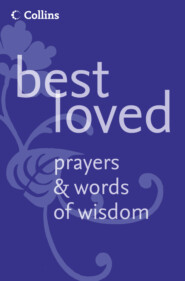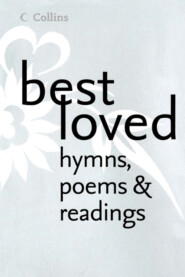По всем вопросам обращайтесь на: info@litportal.ru
(©) 2003-2024.
✖
Christian Christian Names: Baby Names inspired by the Bible and the Saints
Автор
Год написания книги
2018
Настройки чтения
Размер шрифта
Высота строк
Поля
[BEN-juh-min] from Hebrew, meaning ‘son of my right hand’.
Jacob’s youngest son, whose mother Rachel died in childbirth. Though initially kept at home when his brothers went to Egypt to find food, he became the means by which Joseph was reconciled to his brothers (Genesis 42:20–45:15). Also the name of the tribe descended from Benjamin, from whom Esther (Esther 2:5) and the apostle Paul (Philippians 3:5) came.
Variants: Ben, Benji, Benny.
Bernadette (f)
[BER-nuh-det] feminine form of Bernard.
French visionary (1844–79). Born Marie Bernarde Soubirous in Lourdes, the daughter of a poor miller, she was considered sweet natured but backward as a child. In 1858, at the age of 14, she experienced the first of 18 visions of the Virgin Mary in a cave on the bank of the river Gave. Calling herself Mary of the Immaculate Conception, the vision continued to appear to her over a period of two months, both when she was alone and when she was accompanied by others, although only Bernadette could see her. For years the church authorities declined to take her claims seriously and she was the subject of much scorn. She entered the convent of the Sisters of Charity in Nevers in 1866 and remained there until her death at the age of 35, winning respect for her steadfast refusal to acknowledge her own growing fame. In due course the visions of Bernadette established Lourdes as a major centre of pilgrimage, renowned for miraculous cures.
Bernard (m)
[BER-nuhd] from Germanic, meaning ‘brave as a bear’.
Bernard of Clairvaux (1090–1153), French abbot. Born into a noble family of Fontaines de Dijon in Burgundy, he became a monk in 1113, entering the newly founded Benedictine abbey of Cîteaux. Intelligent and charming by nature, he earned a reputation for piety and was noted as a preacher. On the strength of his growing reputation, he was sent with 12 other monks to found a new Cistercian monastery at Clairvaux in Champagne. He went on to oversee the foundation or reformation of 68 more subsidiary houses throughout Western Europe, providing the inspiration for a substantial spiritual revival. His many important writings included works on theology, sermons and letters. He is honoured today as the patron saint of cancer victims and also of Gibraltar.
Variants: Barnet, Bernhard, Bernie, Berny.
Feminine form: Bernadette.
Bernice (f)
[buhr-NEES] from Greek, meaning ‘victorious’.
The oldest of Herod Agrippa I’s daughters (born AD 28), she lived with her brother Herod Agrippa II. She was with her brother at the time of Paul’s defence of his faith (Acts 25:13).
Variants: Bernie, Berny.
Bertha (f)
[BER-thuh] from Old German, meaning ‘bright’.
Frankish princess and Queen of England (died c.603). She married Ethelbert, who was then not yet converted. She brought her bishop-chaplin Liudhard to court. Ethelbert was converted and welcomed St Augustine on his arrival in England in 597.
Variants: Berta, Bertie.
Bethany (f)
[BETH-uh-nee] from Hebrew, meaning ‘house of figs’.
The name of two places in the Gospels. The better known is three km east of Jerusalem where Jesus was based during the last week of his earthly life and where Lazarus, and his sisters Mary and Martha lived (Mark 14:3–9). The other is a place east of the Jordan where John baptised (John 1:28).
Variants: Beth, Bethan.
Beulah (f)
[BEW-luh] from Hebrew, meaning ‘married’.
A place name; symbolic name given to Israel, to refer to its future prosperous state. Instead of being ‘Forsaken’ and ‘Desolate’, Israel would be called ‘My Delight Is in Her [Hebrew, Hephzibah]’ and ‘Married [Hebrew, Beulah]’ (Isaiah 62:4).
Blaise (m)
[blayz] probably from Latin blaesus, meaning ‘lisping’.
Fourth-century Armenian bishop and martyr. Blaise (or Blase) is traditionally identified as one of the Fourteen Holy Helpers who enjoyed cult status in certain parts of medieval Europe. Tradition claims that he was a bishop of Sebastea in Armenia, born into a wealthy Christian family, who died a martyr’s death during the reign of the Emperor Licinius.
Blane (m)
[blayn] probably from Gaelic bláán, meaning ‘yellow’.
Scottish bishop (late sixth century). Blane (or Blaan) was born on the island of Bute and studied for the priesthood in Ireland under St Comgall and St Canice before returning to Scotland. He founded a monastery at Dunblane (now the site of Dunblane Cathedral, where a bell alleged to be his is still preserved) and also performed missionary work among the Picts.
Variant: Blaine.
Boaz (m)
[BOH-az] from Hebrew, meaning ‘strength’.
A wealthy and kind man who married his widowed relative Ruth according to the custom of levirate marriage (Ruth 3–4). Their son Obed was an ancestor of David.
Boniface (m)
[bon-ee-FAS] from Latin, meaning ‘doer of good’.
Boniface of Crediton (c.680–754), English missionary and martyr. Born at or near Crediton in Devon, he was baptised Winfrith and was ordained a priest at the age of 30. Pursuing the quiet life of a monk at Exeter and then at Nursling near Southampton for many years, he earned a reputation as a scholar and won respect as a preacher. In 715, however, he decided to undertake missionary work in Germany, believing this was God’s will. Changing his name to Boniface, he received a papal commission from Pope Gregory II to evangelise in Germany and began his mission in Hesse in 718. Such was the success of his work that in 722 he was raised to the rank of bishop and given charge of all the German territories. The Pope also secured for him the protection of Charles Martel, leader of the Franks.
With this support Boniface won vast numbers of converts and effectively established the church in Germany, founding many monasteries as centres of education and evangelisation and staffing them with fellow-missionaries from England. He also did much to revive the church in France. He is honoured as the patron saint of brewers and tailors.
Boris (m)
[BO-ris] from Russian, meaning ‘fight’.
Both Russian martyrs (died 1015), Boris and his half-brother Gleb were sons of St Vladimir, the first Christian prince of Russia. After their father’s death their elder brother Svyatopolk decided to kill Boris and Gleb to forestall any challenge to his claim to the throne. Boris and Gleb met their deaths without attempting to resist, refusing to endanger the lives of their servants or to oppose their own flesh and blood. After their demise they were acclaimed as Christian martyrs and they are still revered in Russia and Ukraine.
Botolph (m)
[BO-tolf] uncertain origin.
Seventh-century saint; formerly chaplain to a convent, about 654 he established a monastery at Icanhoh identified either as Iken (Suffolk) or Boston (Lincolnshire).
Variants: Botolf, Botulf.
Brenda see Brendan.
Brendan (m)
[BREN-duhn] from Irish Bréanainn, from a Gaelic word meaning ‘prince’.












